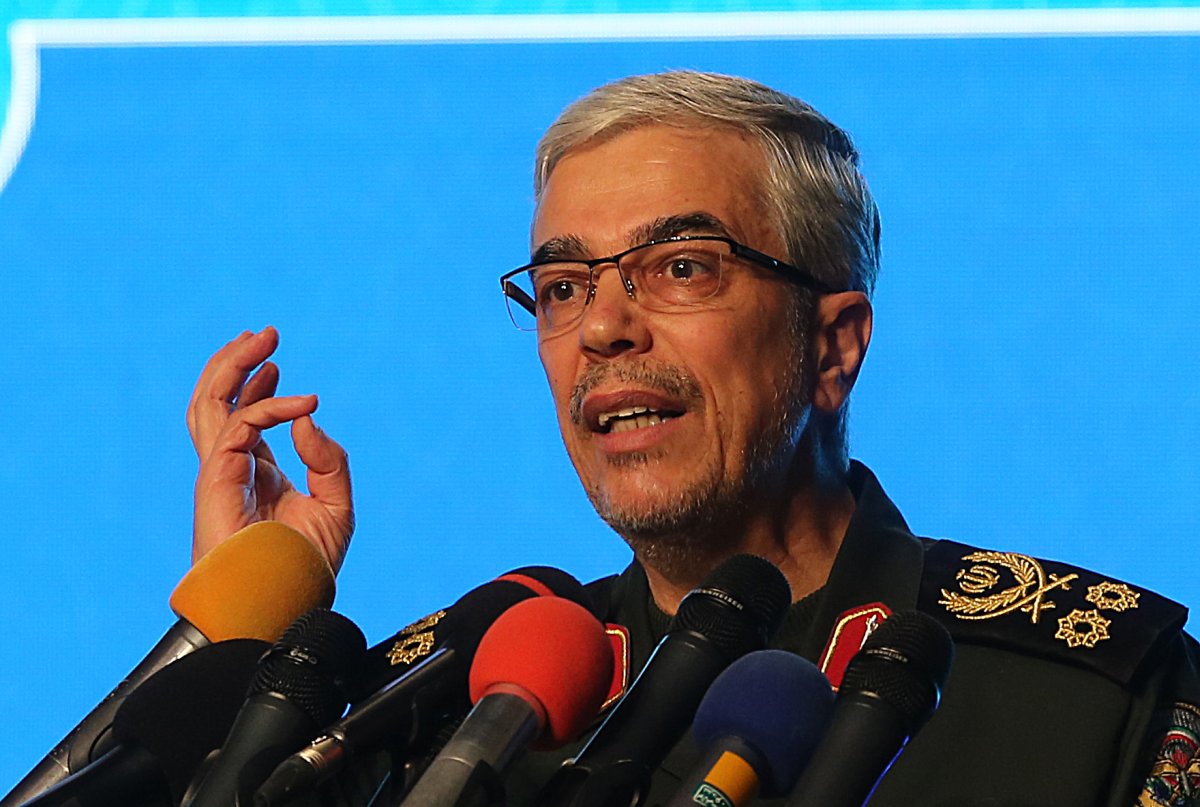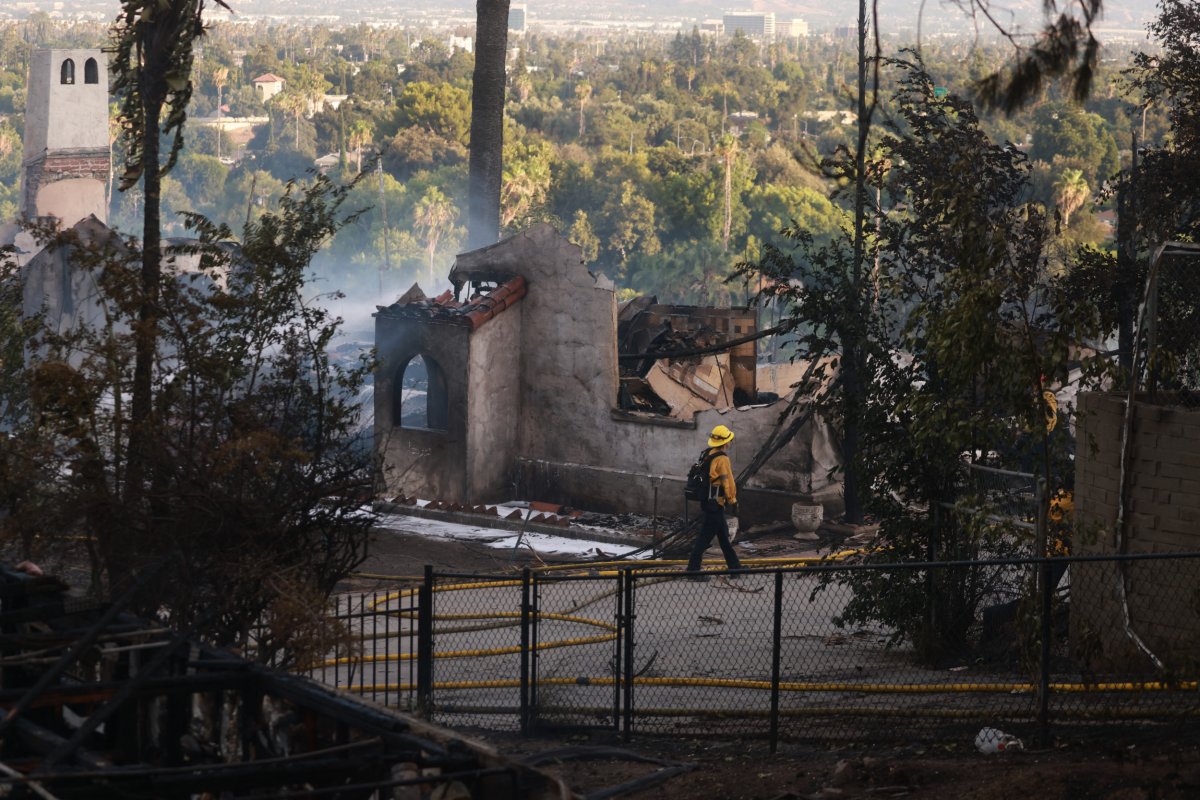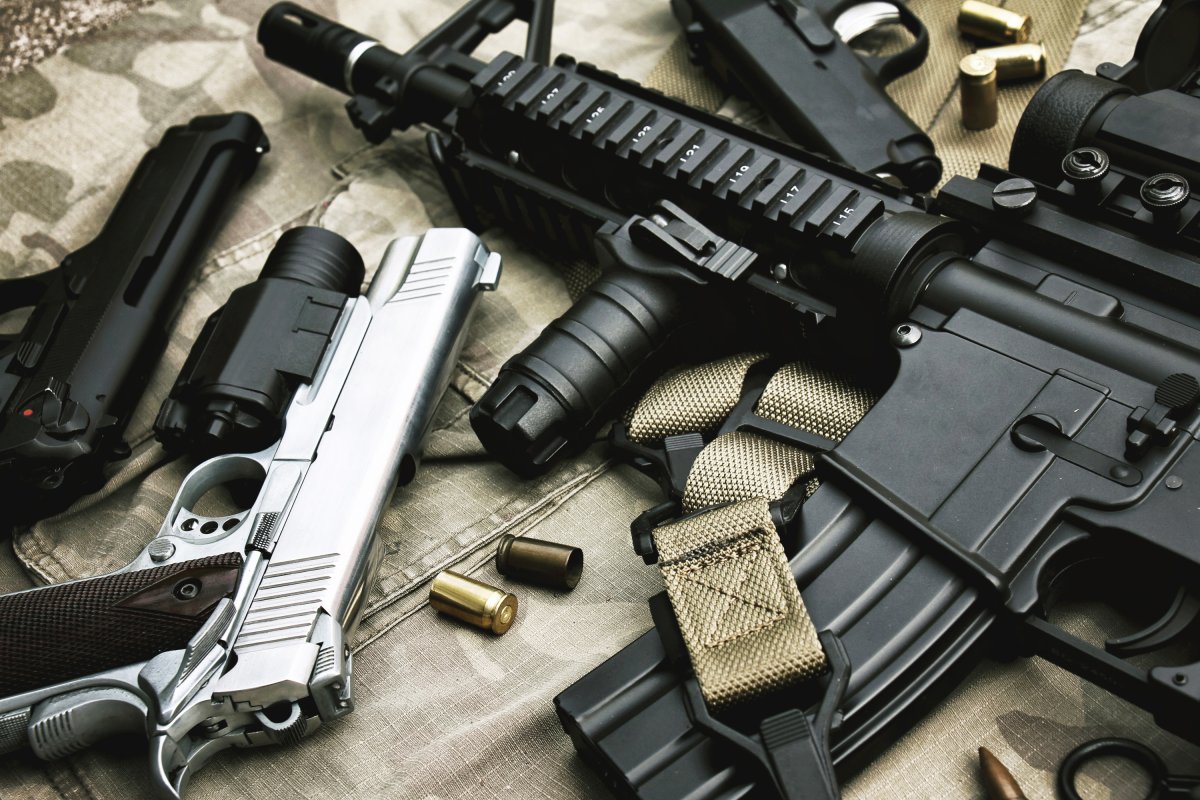The chief of staff of Iran’s armed forces has said that Tehran will give a “calculated” response to the assassination of a Hamas leader that it blames on Israel, as concerns grow over an escalation of tension in the Middle East.
Major General Mohammad Bagheri’s comments on Wednesday came amid anticipation over Iran’s next move following the death of Ismail Haniyeh in Tehran on July 31. Iran’s Islamic Revolutionary Guard Corps (IRGC) and Hamas have said Haniyeh was killed by Israel after attending the swearing-in ceremony of the new Iranian President Masoud Pezeshkian a day earlier.
Israel has not commented on the incident but has previously vowed to eliminate Hamas leaders following the attack by the group on southern Israel on October 7, in which some 1,200 people were killed and around 250 were kidnapped. The war in Gaza has left at least 40,000 people dead, according to health authorities there.

Iranian Armed Forces Chief of Staff Major General Mohammad Bagheri is pictured in Tehran on February 23, 2021. He said on August 28, 2024 Iran would carry out a response to the killing of Hamas leader Ismail Haniyeh Tehran blames on Israel.
ATTA KENARE/Getty Images
Bagheri said Wednesday that Tehran would make a “calculated response,” according to Iranian state media outlets. Newsweek has contacted the Israeli government for comment.
Haniyeh was part of the diplomatic efforts between Israel and the Iranian-backed Palestinian militant group over the war in Gaza.
But four weeks on from his death, there is a delay in Iran’s response to his death as well as a shift in rhetoric coming from Tehran, according to Hamidreza Azizi, a research fellow at the German Institute for International and Security Affairs (SWP) think tank in Berlin.
“There is a shift in the Tehran’s narrative from notions of a significant retaliation to a calculated and measured response,” Azizi told Newsweek on Thursday.
He believes that while Iran is committed to its right to respond, officials in Tehran may have reconsidered the scope and extent of such an attack.
“The dilemma that the Islamic Republic has is they believe that to restore deterrence and prevent further attacks by Israel, they need to show a response,” Azizi said. “But on the other hand, given how delicate the situation is in the region, they need to organize it in a way that wouldn’t ignite a bigger war.”
He said Tehran’s move will take into context the increase in the U.S. military presence in the region in support of Israel and discussions in some circles by analysts that Israel might be using assassinations “as a trap to provoke a bigger war and to get bigger support from the United States.”
“These aspects have made Iranian officials hesitant in their response,” Azizi added. “Whatever the response is going to be, it’s probably not in the extent that we saw in April where hundreds of drones and missiles were launched.”
“In terms of targets—it might be much more limited, more or less like what Hezbollah did,” he added.
The Lebanese militant group, also backed by Iran, said it launched on Sunday around 320 rockets at northern Israel, including at areas like Safed and Acre, and at 11 military bases. Israel said its fighter jets attacked thousands of rockets in Lebanon.









